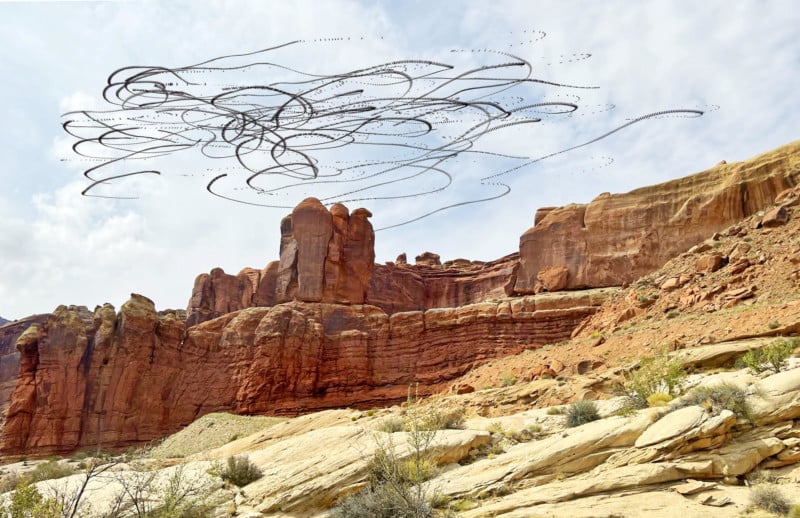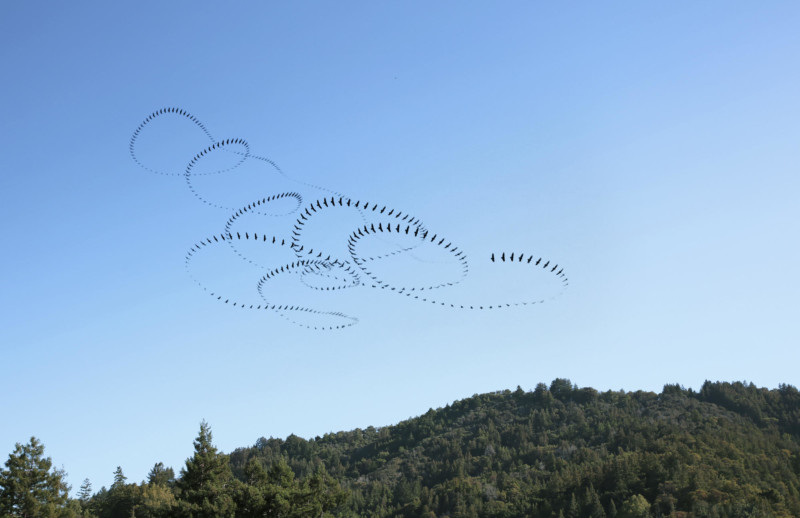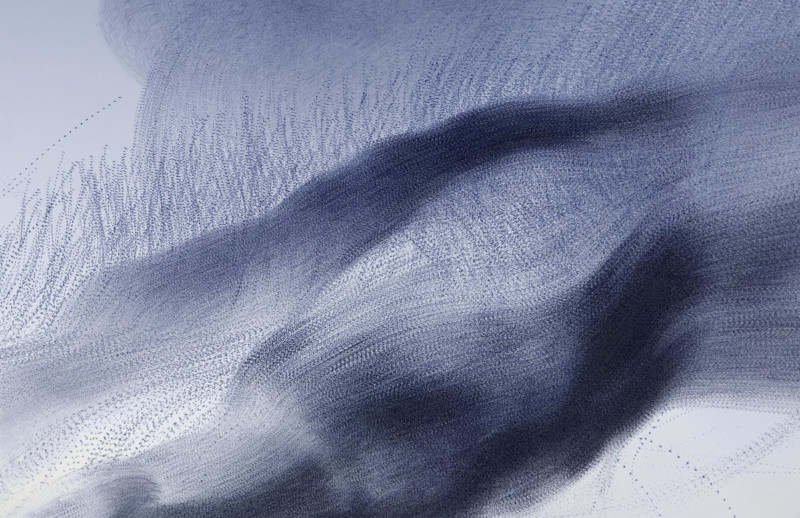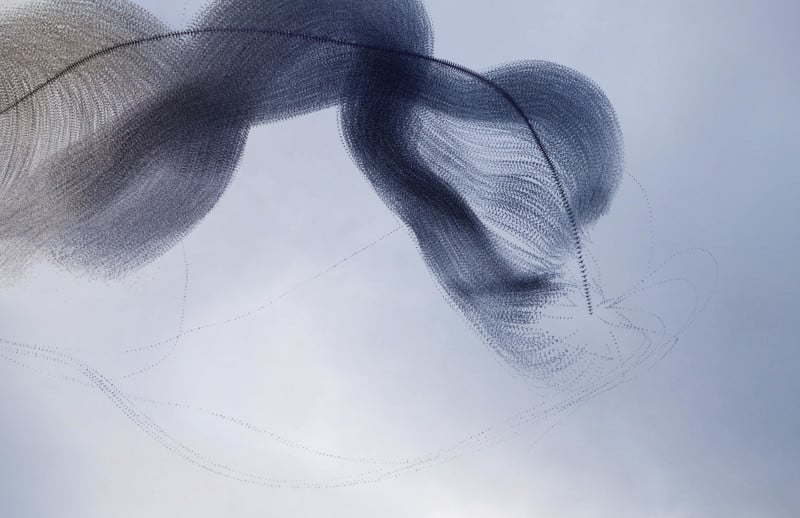
Stifled by lockdown, photographer Doris Mitsch began to look up for inspiration and started photo-stacking bird flight paths with the editing sometimes taking her days to finish.
“The photos take hours and hours and hours to edit. Some combine more than a thousand separate images,” Mitsch tells PetaPixel.
Mitsch used a Canon 5D Mark III sometimes, and sometimes her iPhone 13 Pro.


The resulting photographs are mesmeric that stop the viewer in their tracks, forcing them to determine what it is they are looking at.
“A few people have told me that after they looked at these photographs they never looked at birds, or bats, or dragonflies in the same way again,” says Mitsch in a video on her website.
But, despite the wonderful photographs, the Californian photographer admits that the editing can be a drag.
“Oh yeah. It’s like watching paint dry,” she writes in an email to PetaPixel.
“Some of the murmuration images were made by stacking 500-800 images at a time into composite images, which themselves were then stacked to make the final images.
“I didn’t count the hours, but ‘Starling Murmuration (Falcon),’ for example, was finished about seventeen days after I shot it.
“I’m not saying I worked on it all day every day for those seventeen days! Far from it. I’d go crazy. But it was days, for sure.”

![]()
Mitsch lives near the bottom of Mount Tamalpais, close to San Francisco, and has been exploring ways to show, in a photograph, how time passes through the space in Marin county.
“When the COVID-19 lockdown started, I decided to make use of my stuckness to concentrate for a while on what I could see was still moving and changing,” she explains.
“While we were on the ground locked down, up in the air there was still a lot going on.
“There is a flock of crows that have a regular evening commute up the side of the mountain and down again in the morning.
“Swallows come out around the same to hunt for insects and the way they use the space is actually more similar to bats who make very interesting, quite beautiful flight paths.”
However, Mitsch says that the most incredible flight pattern is the starling murmurations.
“I think [murmuration] is an appropriately mysterious word for how they seem to play with space in a way they couldn’t comprehend even if they could explain it to us.”
More of Mitsch’s work can be seen on her website.
Author: Matt Growcoot
Source: Petapixel



